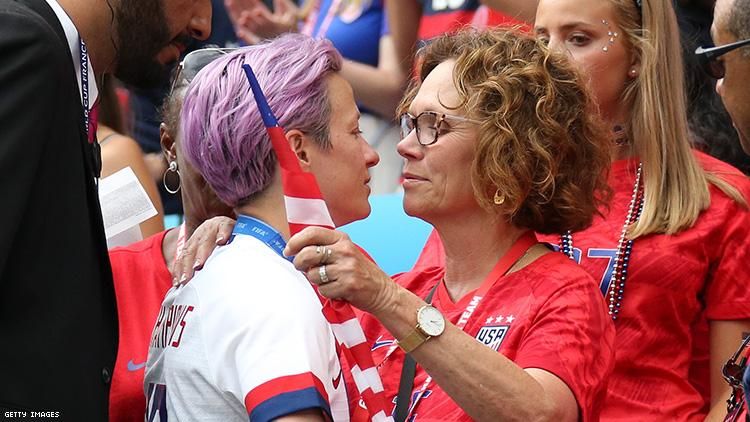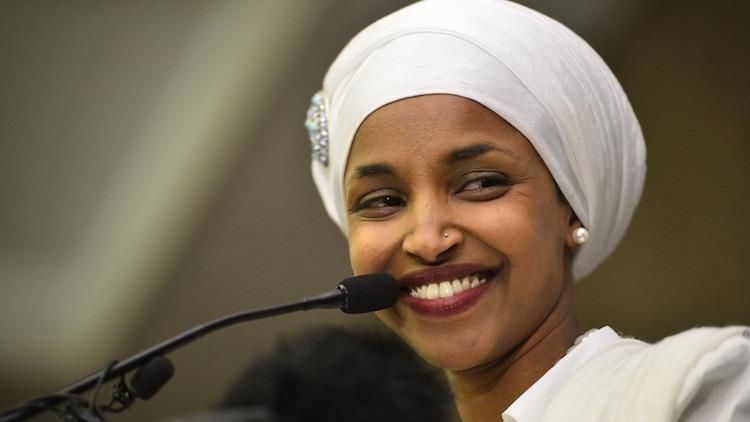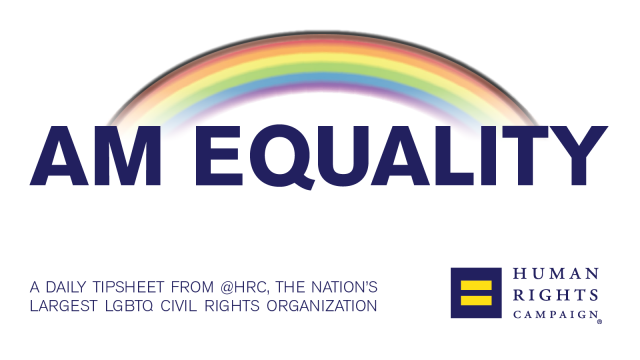OP-ED: Inaugural Southern HIV/AIDS Awareness Day launches today, August 20th: Everything you need to know about the day and why it matters to the Southern community

“Freeing yourself was one thing. Claiming ownership of that freed self was another.” (“Beloved,” 1987) – Toni Morrison
While there are many days that seek to raise awareness around HIV/AIDS throughout the year (National Black HIV/AIDS Awareness Day, National Youth HIV & AIDS Awareness Day, World AIDS Day) for the first time ever, this year the eyes of the HIV/AIDs community will collectively turn to the Southern United States on August 20 as we mark the inaugural Southern HIV/AIDS Awareness Day (SHAAD).
Southern HIV/AIDS Awareness Day (SHAAD) is the first ever day dedicated to looking at the HIV/AIDS epidemic on a local level in the south, and for that reason it is already slated for a strong kick off. Organizers, private industries, government officials, and communities will join together to make their mark in shaping history. While the day will exclusively focus on the South, the awareness day is also an opportunity for people from across the country to join a national movement to raise awareness, erase HIV-related stigma and discrimination, and advocate for new and necessary resources and solutions to stem the tide of HIV/AIDS in the South.
According to the Center for Disease Control and Prevention (CDC), “the South now experiences the greatest burden of HIV infection, illness, and deaths of any U.S. region, and lags far behind in providing quality HIV prevention and care to its citizens.” Year after year, more people are diagnosed with HIV in the South than the rest of the country combined. It should come as no surprise why organizers and founders of the day decided to take a break from summer to bring much needed attention to their community.

So what exactly will this day mean to people living and working in the South? As I was thinking of the best way to share that with the readers of GLAAD, I thought there could be no better way than to hear directly from the people themselves. These are Southern voices who are planning to commemorate the day across their communities they serve from across the region.
Shanell McGoy, PhD, MPH, Associate Director, Gilead COMPASS Initiative,
Gilead Sciences Inc.
When the rate of HIV infections in the South is one third higher than the national average, we need to think broadly about how we tackle this problem at the intersections. I’ve dedicated my career to addressing the growing HIV epidemic, particularly in the Southern U.S., and #SHAAD2019 is an important step in a nationwide effort to look at this issue holistically. We’ve come so far in this fight together as one community and with a voice louder than ever. We can go further to end the epidemic in our country.
Aquarius Gilmer, M.Div., Director, Government Affairs & Advocacy,
Southern AIDS Coalition
State: Alabama
The inaugural SHAAD means that a new wave of a movement building is taking place that raises the awareness of the HIV crisis in the South. SHAAD centers the unique challenges, needs and possibilities for Southerners as we seek to mount a sustainable response to significantly reduce HIV. SHAAD is an opportunity for local communities to be reinvigorated and double down on our data-driven-advocacy, medical and non-biomedical interventions and stigma reduction efforts.
Jasmine Tasaki, Executive Director, WeCareTN
State: Tennessee
SHAAD means a lot here in Memphis Tennessee. We are consistently in the top five in the country for new HIV diagnoses, so this day means raising awareness to save our community in a major way. The stigma associated with HIV/AIDS needs to be dismantled city by city, and state to state. The lives impacted in our city is large in number, so there should be a large amount of awareness as well. This day is so important to ending the epidemic by 2030. More importantly is the conversations that have to be had on a small scale to serve as a vehicle to move small, rural, or marginalized communities into the mainstream conversation.
Coleen K Cunningham, MD, Professor of Pediatrics, Duke University Medical Center
State: North Carolina
Southern HIV/AIDS Awareness Day provides an opportunity to increase awareness of the HIV epidemic and to educate everyone that people with HIV are not to be feared, avoided, or blamed. The ultimate goal is to decrease the stigma. People who are living with HIV shouldn’t have to deal with taking on the significant stigma that is so common in the Southern US.
Quintay Knight, Artist, NMAC’s Youth Initiative
State: Florida
Living in the South I’ve witnessed so many wonderful individuals and organizations from all different backgrounds come together in support of this day to form a collective power. There’s nothing like seeing your community and other communities come together in unity to love, support, and bring awareness.
Venita Ray, Deputy Director, Positive Women’s Network – USA
State: Texas
We are pleased to see the first Southern HIV/AIDS Awareness Day and hope that it will bring attention to the unique geographical, political and historical dynamics of the south that are at the heart of why it bears the greatest burden of the US HIV epidemic. As a resident of the South, I want others to know that we are more than our HIV burden. We invite the rest of the country to work with us in eliminating the socio-economic and racial inequities that make our communities vulnerable to HIV.
Julian Walker, Actor, BET’s Being Mary Jane and Author, A Year Without You
State: Mississippi
Awareness about HIV/AIDS within the South is needed because the conversation tends to still be taboo and rooted in stigma. Growing up in Mississippi, the education we’ve received around testing and sexual health wasn’t enough. We as a community must also learn the importance of prevention options such as Pre-exposure Prophylaxis (PrEP) or Post-exposure Prophylaxis (PEP) and treatment advances like Undetectable = Untransmittable (U=U).
Milan N. Sherry, Lead Organizer & Founder, Nola Trans March of Resilience
State: Louisiana
I am a transgender woman, an organizer, and a Southern girl originating from New Orleans, L.A. I have navigated the care-scene professionally and as someone living with HIV. I am a leader, a mother, a teacher, an activist, and an advocate, who has lead organizations, developed programs and did countless hours of outreach for LGBT communities and for people living with HIV/AIDS. In the South, I have witnessed a comparable difference when navigating care, access, and resourcing professional caregivers who possess knowledge in the Southern region. Awareness days like SHAAD, hopes to create an impact with real aims and are all the more important to our Southern communities. Southern-organized events like the 2nd Annual Nola Trans March of Resilience, happening this November 20th, is a testament to that communal survival and peer-education we need. SHAAD provides the scope and lens that it is important for us in the South find our commonality, through understanding the facts about the issues sweeping our region.
Min. Alphonso Mills, Community Advocate
State: South Carolina
With the impact of the HIV/AIDS epidemic on the South, the inauguration of SHAAD shines a light on the systematic and social issues that perpetuate the stigma and spread of HIV. While medications are improving to help people live longer lives, HIV stigma in religious communities, barriers to accessing adequate healthcare, increasing homelessness amongst LGBTQ youth, and other determinants impact the likelihood of the most impacted communities obtaining the medication and taking it daily.
Living with HIV for 6 years, and contracting HIV in the South, it touches home to have a day to stand boldly in my truth, and show people in my community that it is possible to live with HIV and “Live my best life!” This day could be the catalyst to show the world that while the South has struggled with fighting this epidemic, it is time to bring our layered intersections together and address the real problems we face in the South. We must look at our community as individualized pieces that make up a beautiful mural of resilience and strength tied together in respect for one another.
Kendall Boone, Co-Founder/Marketing Director, He Is Valuable, Inc.
State: Georgia
For my community organization, HIV is a tangible reality, one we don’t have the privilege to live outside of when our younger brothers, cousins, bristas seroconvert on an almost daily basis. For me and my community, SHAAD means an awareness of everyone in the South, from the privileged to the disenfranchised, to wake up and realize the reality of HIV. The beauty of HIV in 2019 is biomedical prevention and treatment empowers everyone, regardless of HIV status, to take control of their HIV status.
Dr. Celeste Watkins-Hayes, Author of Remaking a Life: How Women Living with HIV/AIDS Confront Inequality, Professor of Sociology and African American Studies & Faculty Fellow in the Institute for Policy Research at Northwestern University
SHAAD represents an important call to action to address the HIV epidemic in the South. My book, Remaking a Life: How Women Living with HIV/AIDS Confront Inequality, unequivocally demonstrates that we cannot end the epidemic unless we build a supportive infrastructure that wraps its arms around the community. Access to health care, economic resources, social support, and political voice are vital tools necessary to prevent new infections and to assist people living with HIV.
Remaking a Life is available on Amazon and Indie Bound.
To learn more about Southern HIV/AIDS Awareness Day, visit southernsolution.org.
Also today show your support and share your stories on social #SHAAD2019








